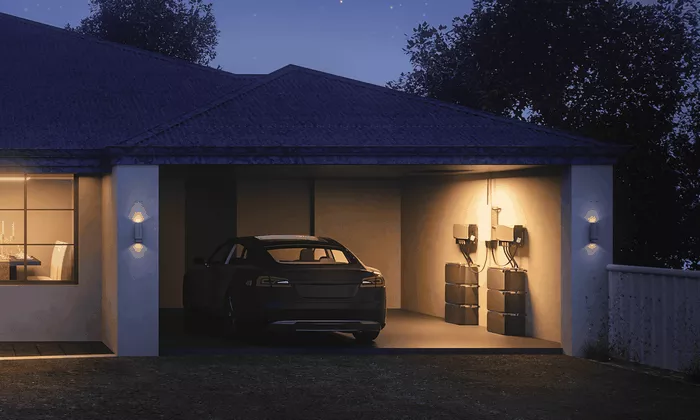When planning for power outages, selecting the right generator size for a 2500-square-foot home is a critical decision. It ensures you can maintain comfort, safety, and functionality while avoiding unnecessary expenses. This comprehensive guide will help you determine the ideal generator size by examining key factors, calculations, and practical tips.
Understanding the Power Needs of a 2500-Square-Foot House
The energy demands of a home this size typically range between 5,000 and 12,000 watts, depending on various factors. These include the number of appliances, the home’s climate, and the household’s lifestyle. A home with energy-intensive systems like central air conditioning or electric heating will require more power. Similarly, homes in extreme climates may need higher wattage to support HVAC systems.
Lifestyle habits also play a role. A household with energy-efficient practices may need less power than one using multiple high-wattage appliances.
Calculating Your Power Requirements
List Your Essential Appliances
To start, make a list of the appliances and devices you’ll need during a power outage. Typical essentials include:
- Refrigerator: 600–800 watts
- Freezer: 500–700 watts
- Central air conditioner: 3,000–5,000 watts
- Electric water heater: 4,500 watts
- Lights: 300–600 watts
- Microwave: 800–1,200 watts
- Television: 100–300 watts
- Washing machine: 1,000 watts
Understand Starting and Running Wattage
Appliances require two types of wattage:
Running Wattage: The power needed to keep an appliance running.
Starting Wattage: The surge of power required when the appliance starts, often 2–3 times the running wattage.
Add Up Wattage Requirements
Calculate the total running wattage of your essential appliances. Then, add the highest starting wattage from your list. For a typical 2500-square-foot home, the total running wattage may fall between 7,000 and 9,000 watts, with an additional 2,000–3,000 watts for starting loads.
Types of Generators to Consider
Portable Generators
Portable generators are a cost-effective option for powering essential appliances. They typically offer between 5,000 and 7,500 watts, enough for basic needs but not for the entire home.
Pros: Affordable, easy to move, and suitable for temporary use.
Cons: Limited power output, requires manual refueling, and is less durable for prolonged usage.
Standby Generators
Standby generators are permanently installed units capable of powering an entire house. They generally provide 10,000 to 25,000 watts, making them ideal for larger homes.
Pros: Automatically activates during outages, reliable, and durable.
Cons: Higher upfront costs and requires professional installation.
Inverter Generators
Inverter generators are known for their quiet operation and clean energy, making them safe for sensitive electronics. They typically provide 4,000 to 7,000 watts, suitable for partial home backup.
Pros: Fuel-efficient, quiet, and safe for electronics.
Cons: Limited capacity and higher cost per watt.
Matching Generator Size to Your Home’s Needs
Basic Essentials Only
For powering only essential items like a refrigerator, lights, and a few small appliances, a generator with 5,000–7,000 watts should suffice.
Partial Home Backup
If you want to include critical systems like air conditioning alongside essentials, a generator between 8,000 and 12,000 watts is recommended.
Whole-Home Backup
To power your entire home, including HVAC systems, water heaters, and kitchen appliances, a standby generator with 15,000–20,000 watts is the best choice.
Fuel Options and Their Impact on Generator Size
Gasoline
Gasoline is a common fuel for portable generators. It is readily available but has a shorter shelf life and is less efficient for large generators.
Propane
Propane burns cleanly and has a long shelf life, making it a popular choice for both portable and standby generators. However, it requires a storage tank and regular refills.
Natural Gas
Natural gas provides an unlimited fuel supply when connected to a home line. It is ideal for standby generators but not suitable for portable models.
Diesel
Diesel is highly fuel-efficient and reliable for heavy-duty generators. However, it requires proper storage and is more expensive upfront.
Key Factors to Consider When Buying a Generator
Noise Levels
Standby generators are quieter than portable ones. Look for models with a noise rating below 70 dB to ensure comfortable operation.
Automatic Transfer Switch (ATS)
An ATS ensures your generator starts automatically during a power outage, essential for whole-home systems.
Installation and Maintenance Costs
Standby generators require professional installation, which adds to the initial expense. Regular maintenance, including oil changes and filter replacements, is crucial for long-term reliability.
Warranty and Brand Reputation
Choose well-known brands like Generac, Kohler, or Briggs & Stratton, which offer robust warranties and proven reliability.
Cost Breakdown of Generators for a 2500-Square-Foot Home
Portable Generators (5,000–7,500 watts): $500–$1,500
Standby Generators (10,000–20,000 watts): $3,000–$10,000 plus $2,000–$5,000 for installation
Inverter Generators (4,000–7,000 watts): $1,000–$3,000
Tips for Choosing the Right Generator
Assess your energy needs and prioritize essential appliances.
Plan for future expansions by choosing a generator with slightly higher wattage.
Consider dual-fuel generators for added fuel flexibility during emergencies.
Invest in a maintenance kit to ensure your generator remains in peak condition.
Conclusion
Choosing the right generator size for a 2500-square-foot house depends on your power requirements, budget, and lifestyle. For basic needs, a 5,000–7,000-watt generator is sufficient. For partial home backup, aim for 8,000–12,000 watts. For full-home coverage, opt for a 15,000–20,000-watt standby generator. By evaluating your needs and understanding generator options, you can ensure your home remains functional and comfortable during any power outage.
Related topics:

